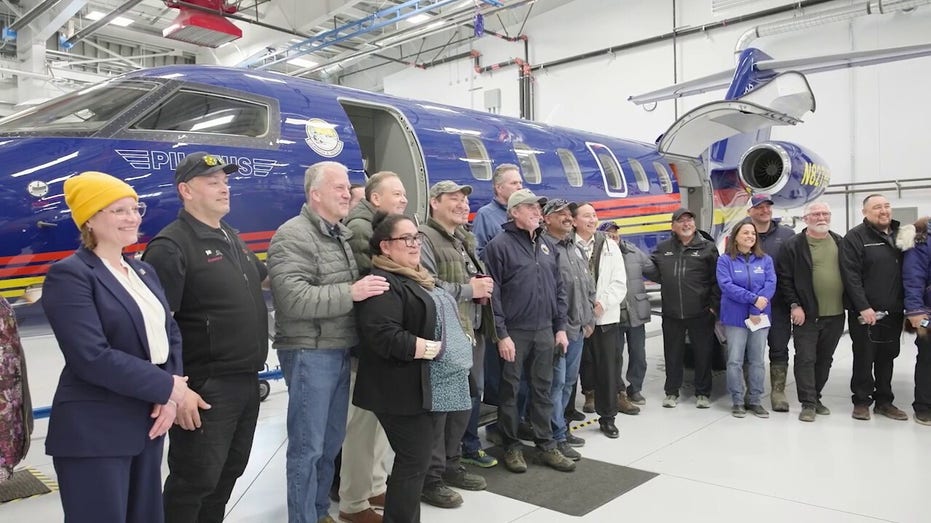AK Natives Criticize Biden Energy Bans Amid Trump Officials’ Tundra Tour: “Homeland Would've Been Stolen”
Alaska resident praises president for blocking environmental groups as Energy Secretary highlights vast untapped energy potential in Kaktovik.

Alaska Natives and residents of the North Slope Borough had a rare and direct opportunity this week to share their perspectives with high-ranking federal officials, as Interior Secretary Doug Burgum, Energy Secretary Chris Wright, and EPA Administrator Lee Zeldin traveled to Utqiagvik alongside Alaska Governor Mike Dunleavy. The multi-day tour of oil and gas fields, operations, and communities marks an unprecedented level of engagement between local residents and policymakers typically based thousands of miles away.
For many Alaskans living along the Arctic Ocean, the visit was a chance to voice longstanding concerns about how federal environmental policies impact their livelihoods and future. Charles Lampe, a Native resident of Kaktovik—a remote village within the Arctic National Wildlife Refuge (ANWR)—articulated the frustrations felt by many in the region. “We were under attack in Kaktovik by environmental groups,” Lampe told officials, underscoring how outside activists and distant lawmakers have often opposed energy projects without living through the economic realities faced by local residents.
Lampe credited former President Donald Trump and his administration for actions he believes protected ancestral homelands while enabling resource development that sustains jobs and communities. “On Day 1, President Trump told the Fish and Wildlife Department to deny their [activists'] requests. That was such an amazing thing for us… he made sure that our ancestral homelands weren't going to be stolen—and instead protected,” Lampe explained. He contrasted this experience with fears that the Biden administration's approach might result in further restrictions and loss of economic opportunity for the region's residents.
Secretary Burgum responded directly to community members, saying he believed Trump would welcome a visit to ANWR’s ‘Section 1002’—the area designated for potential oil and gas development—and that the former president has shown a surprising willingness to engage with local stakeholders. Burgum recounted how Trump’s practical questions during meetings with oil executives, such as asking why essential roads hadn’t been built, demonstrated an openness not previously seen from national leaders. “President Trump does care super deeply about this at a deep level,” Burgum emphasized.
The event also highlighted ongoing frustration with federal bureaucracy and regulation. Energy Secretary Chris Wright visited the historic Prudhoe Bay Discovery Well and noted, “The last few decades have seen a long, slow decline of North Slope oil production—not because they're running out of oil… It's because of federal regulation, bureaucracy. It's made it so expensive and difficult to operate.” Wright pointed to the region’s vast untapped resources and the prospect of exporting energy to Asian markets as proof that Alaska remains key to America’s energy security and global strategy.
Alaska Governor Mike Dunleavy echoed these sentiments at a recent global sustainable energy conference in Anchorage, which attracted interest from potential partners across Asia. Both state and local leaders stressed that responsible development could allow Alaska to provide solutions not just for its own communities, but for broader national and international needs.
This direct line of communication between Alaska Natives, local residents, and White House officials is seen as a significant shift, giving voice to communities accustomed to being on the receiving end of distant policymaking. The message from North Slope residents was clear: they seek a balance between environmental stewardship and the right to shape their own economic future on ancestral ground.




